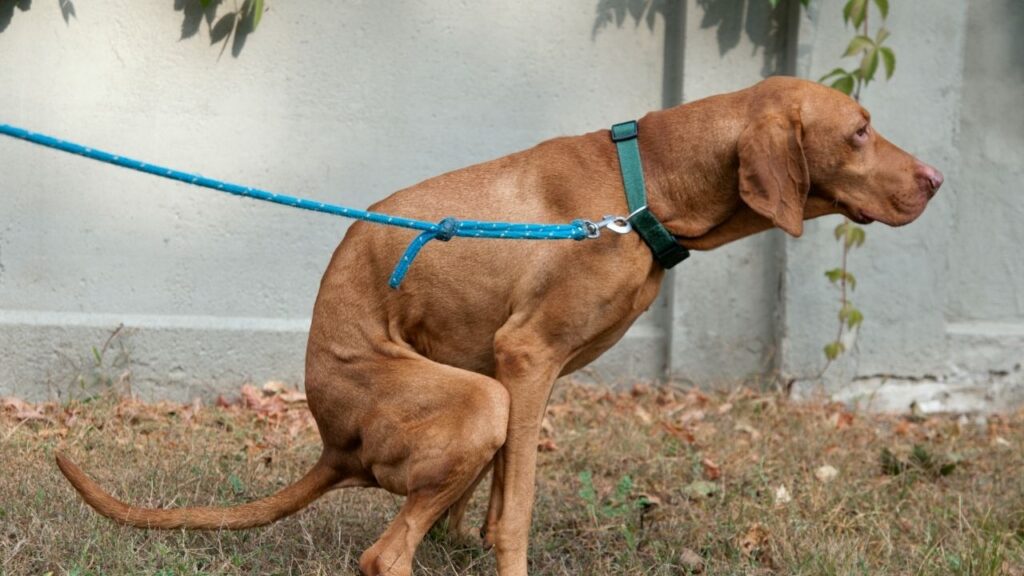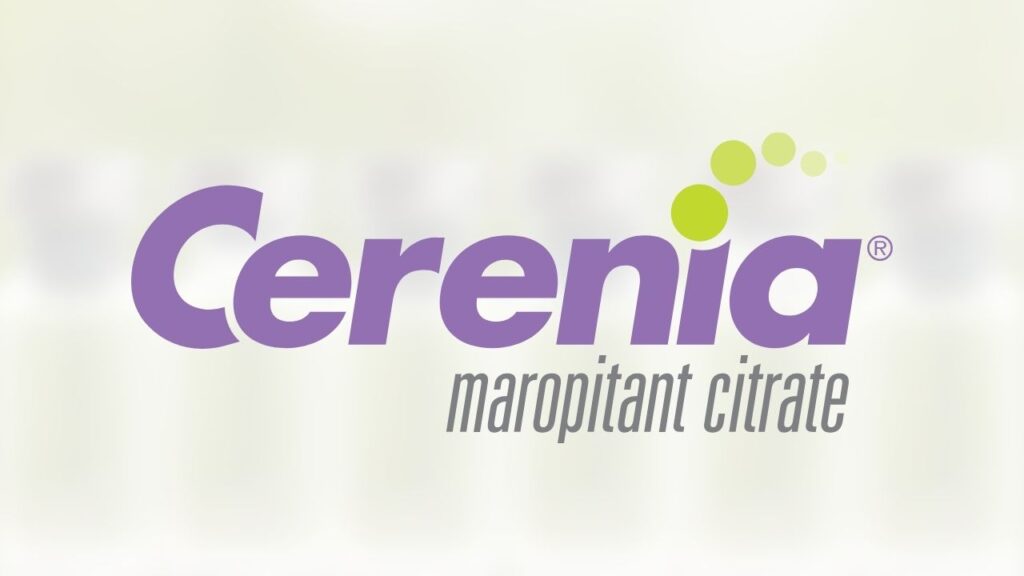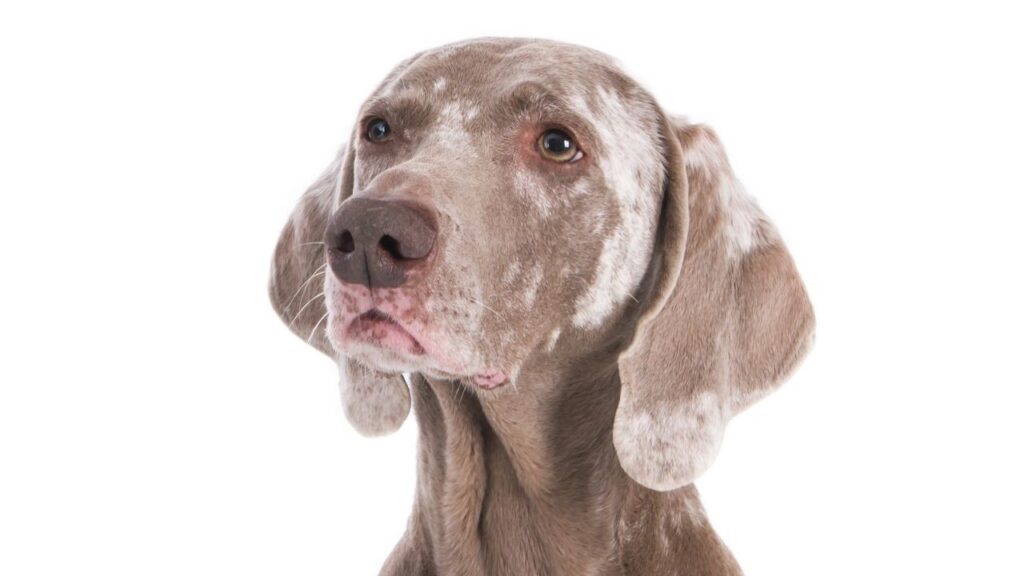Diarrhea in dogs is one of the most common reasons owners call their veterinarians. Its cause isn’t always immediately obvious, which can be frustrating. If your dog is otherwise healthy, an episode of diarrhea is usually not a cause for concern. However, there are exceptions to that rule, and dogs diagnosed with cancer may require some extra care with added precautions.
Key Takeaways
- Diarrhea in dogs is common, and several things can cause it.
- Diarrhea is not an immediate cause of concern unless it lasts several days or is accompanied by other symptoms, such as vomiting.
- Unhealthy dog poop may have abnormal coloring, be very hard, or watery with no defined texture, or contain unexpected contents.
- Some over-the-counter treatments meant for humans can also be safe for dogs. Pepto-Bismol is usually safe, and Imodium may also be safe, although not in all dogs and cases.
What Is Diarrhea?
Diarrhea in dogs is characterized by the defecation of unformed or loose stools in larger amounts and at higher frequencies than usual.1 It is relatively common in dogs and is one of the top reasons that dog owners seek guidance from their vet.2,3
Diarrhea can be:
- acute (lasting three to seven days)
- prolonged (lasting eight to 13 days)
- chronic (lasting more than 14 to 21 days)2
Most cases of diarrhea in dogs clear up on their own and require very little, if any, intervention.
Although an episode of diarrhea once in a while doesn’t usually warrant concern, it can be a symptom of an underlying issue or disease, which, in some cases, can be serious.1
What Happens During Diarrhea
Healthy dogs pass food from the mouth to the stomach and through the large intestines in under ten hours, with a well-formed stool resulting.2
Diarrhea disrupts this otherwise normal and consistent process.2 Fecal material moves faster through the intestines, and less water, nutrients, and electrolytes are absorbed into the body as a result.1 This ends in defecating runny, inconsistent, and irregular stools.1
What Causes Diarrhea in Dogs?
There are many potential causes for diarrhea. Some are short-lived problems, and others are not. Sometimes your veterinarian will be able to determine the exact cause, and sometimes not.
Let’s look at the most common causes of diarrhea in dogs.
Diet
The most likely cause of diarrhea in dogs is their diet.6
There are some dogs that will eat just about any type of food they can access. Dietary indiscretion in dogs is casually called “garbage gut” by veterinarians.2 It refers to when a dog eats too much, eats garbage, or eats spoiled food.2 Your dog will likely experience diarrhea after they’ve indulged.
But not all diet-related diarrhea is caused by bad foods. Sometimes, it’s the good food you give your dog that causes diarrhea.
Changing your dog’s food or adding new food may be fun for your dog, but it could also cause disruption in their tummy.
New food results in new proteins and other compounds that your dog’s digestive system is seeing for the first time.2 This can cause intestinal upset, ultimately resulting in some less-than-ideal poo.
You may have heard a veterinarian advise you to start a new food slowly, over time, even up to two weeks. This allows your dog’s gut to adjust to new foods over time and reduces the risk of diarrhea or other digestive problems.
Bacteria
Bacteria is often the cause of diarrhea in humans, so it is natural for us to assume knowing what kind of bacteria is present is helpful in dogs. However, this just isn’t the case in dogs.4 If bacteria are causing your dog’s diarrhea, it’s difficult for veterinarians to discern which species are present.
Salmonella is one of the few validated tests, and it is somewhat readily available to veterinarians. It takes as little as 24 hours to receive results. The prevalence of salmonella in dogs is only 0% to 2%.4 It can take days for clinical signs to develop and may not be dangerous.4 One study fed salmonella to dogs for 117 days without any serious issues4 However, another study reported that all dogs died within four to 17 days of ingestion.4
Viruses
Diseases like canine distemper and parvovirus are highly contagious and lend themselves to high mortality rates if left untreated.5 Diarrhea is one of the first signs of parvovirus, so it may be a consideration if your dog is under four months old or has not received the vaccination.2
Parasites
Parasites may come to mind as you cycle through possible causes of your dog’s diarrhea. Single-celled organisms like coccidiosis and intestinal worms like hookworms, roundworms, and whipworms can wreak havoc on your dog’s gastrointestinal tract.1 Puppies and dogs with weak immune systems are likelier to suffer from parasites than otherwise healthy dogs.2
Stress
Stress can cause large physiological changes that result in loose stools.1 Causes of stress that lead to diarrhea, as reported by the owners of 37 dogs, included thunderstorms, trips to the groomer or vet, participating in dog shows, experiencing the death of another household pet, visits of friends and relatives to their dog’s household, traveling, moving, house construction, and the installation of an invisible fence.14
If your dog has recently had a tough time of it for any reason, her diarrhea might be related.
Tumors
Abnormal growths can cause diarrhea in dogs.6 Both benign and cancerous tumors originating in the gastrointestinal tract, and lymphoma, are more associated with diarrhea than others.15
Chemotherapy
Diarrhea is an expected side effect of chemotherapy and is usually manageable. Once compounded with other symptoms like vomiting, things can get dicey. That said, very few dogs undergoing chemotherapy experience symptoms that escalate to the need for hospitalization.
Other Diarrhea Causes
Other potential causes of diarrhea in dogs include allergies, kidney or liver disease, organ dysfunction, ingestion of poisonous substances, plants, or foreign objects, medication, and inflammatory bowel disease.2,1
Reasons for diarrhea are so numerous and difficult to pinpoint that veterinarians may state the cause as “idiopathic.”6 In other words, having no apparent cause at all.8
Dr. Demian Dressler explains how to help your dog when she has diarrhea on DOG CANCER ANSWERS.
What Causes Dog Diarrhea That Lasts a Long Time?
Let’s parse through a data set involving 136 dogs suffering from diarrhea for three weeks or more.6
- Of the 136 dogs examined, 90% showed evidence of an inflammatory response. Within this 90%, veterinarians determined that diet was the primary cause in 66% of cases and antibiotics were the primary cause in 11% of cases. The remaining 23% were categorized as idiopathic (having no known cause).
- Infections were found in 13% of the 136 dogs investigated, and 4% had abnormal growths, or tumors, present. One dog was found to have systemic vasculitis or inflammation of the blood vessel walls, contributing to their diarrhea.
- A total of 87% of dogs fully recovered from their diarrhea, while the remaining 13% died or did not respond to treatment. Of those dogs who had fatal cases, the majority of them were categorized as having idiopathic causes or tumors present.
As you can see, even when diarrhea lasts a long time, veterinarians may never find the specific cause. It’s also clear that most dogs fully recover from even chronic bouts of diarrhea.
What You Can Do Immediately for Your Dog’s Diarrhea
Diarrhea caused by a mild illness can become serious if left untreated,1 so it’s important to be proactive in your dog’s care.
The first thing to do is observe your dog so you can determine whether they need veterinary care. It will also help you inform your veterinarian if you do need their help.
It’s a good idea to collect a sample of your dog’s stool the first time you see diarrhea, just in case you must go to the vet.1
Examine the color, consistency, smell, shape, size, and content of the stool, and consider the frequency of your dog’s diarrhea. This will ultimately help inform whether you can help your dog at home, or if they need to see the vet.1,2
How your dog’s poop looks and smells can give us much information. So does the amount and the consistency.
Color
- Healthy stools should be chocolate brown.
- Orange or yellow indicates that something may be wrong with your dog’s liver.
- Gray is typically an issue with the pancreas.
- Green could be a problem with the gall bladder, but could also indicate that your dog ate too much grass.
- Red may be due to bloody diarrhea.2
Amount
- Small amounts of fecal material may be due to inflammation in the large bowel.2
- Large volumes that come out three to four times may indicate an issue with the small bowel.2
Consistency
- Healthy stools are well-formed and solid but not hard.
- Hard pellet-like stools or watery puddles with no defined texture are abnormal.2
Contents
- What’s inside your dog’s stools can be informative.
- Tapeworms look a lot like small pieces of white rice.
- The presence of grass, wood, or string can point to your dog having eaten something indigestible.2
You can use fecal scoring charts like this one from Purina to help you describe your dog’s poop to your veterinarian.
Home Treatments: How to Stop Diarrhea in Dogs
There are some actions you can take at home if your dog’s diarrhea is mild. Over-the-counter treatments are readily available, and some for humans can also be safe for dogs.2
Fasting
Fasting your dog is a good first step. It gives your dog’s system a chance to rest and heal.
You can withhold food from your dog for 12 to 24 hours and only provide water or ice chips in small but frequent amounts.2 This allows the gastrointestinal tract to settle.2
You’ll want to ensure your dog is healthy enough to withstand withholding food.2 This may not be the case if your dog has cancer and needs extra nutrients.
Pepto-Bismol
Check with your veterinarian about how much Pepto-Bismol® to give your dog, but in general, it’s safe to give your dog 2 to 2.5 mL of liquid Pepto-Bismol for every ten pounds of body weight every six hours.7
Pepto-Bismol may cause your dog’s stools to turn blackish, gray, or green. While this is no cause for alarm, it may make seeing blood in their stools more difficult if the condition worsens.7
Imodium
You can also give your dog Imodium®, although it has more side effects than Pepto-Bismol, so caution is warranted.
The most common side effect is constipation, which may seem good if your dog has diarrhea, but if it goes on for too long, it isn’t. If you see severe lethargy, bloating, heavy breathing, or any other signs of respiratory distress, your dog may need help from your veterinarian.
Caution: Herding Breeds and White Feet
If your dog is a herding breed, they may have a mutation in the MDR1 gene that makes it hard for them to break down some types of drugs. Imodium is one of those drugs, so if you have a herding dog or know your dog has the MDR1 mutation, don’t give Imodium. Interestingly, a saying vets have about the MDR1 mutation is “white feet, don’t treat,” so keep that in mind, as well.
Caution: Dogs In Fragile Health
If your dog has another health condition or is fragile, it’s a good idea to check with your veterinarian before using Imodium. If they approve its use, they will give you the dose specific for your dog and their condition. The doses range; usually landing on about 0.1 mg per kilogram of body weight up to two times per day. (So a ten-pound dog would get .4 mg dose, and a fifty-pound dog could take a 2 mg dose.)
Please check with your veterinarian about using Imodium and dose as they suggest. Give one dose, and only give another one that day if it seems necessary, and stop using Imodium if symptoms don’t improve within 48 hours.7
When to Call Your Vet About Diarrhea
The seriousness of diarrhea depends on how long it lasts and what other signs accompany it.1 Anything that is “out of the ordinary” is worth calling your vet.2
Signs that accompany diarrhea, like blood in your dog’s stool, weakness, fever, vomiting, abdominal pain, loss of appetite, or dehydration warrant a phone call to your veterinarian.1
Be prepared to answer questions from your veterinarian or their office staff over the phone and describe the state of your dog’s stools in detail.1 Inform your vet if your dog has started a new medication or if they have a preexisting condition.2 If your dog has cancer, then you’ll definitely want to let your vet know.2
Using the information over the phone, your veterinarian or their technician or nurse may be able to point you to some at-home remedies, or prescribe medication that can help. Otherwise, they’ll ask you to come in to determine what may be needed.
Dr. Nancy Reese takes a Listener Line call about dreaded bloody poop on DOG CANCER ANSWERS.
Veterinary Treatments for Diarrhea In Dogs
Your vet may ask you to withhold food for up to 24 hours or feed small amounts of a prescribed diet.1
Your vet may also advise you to give your dog unflavored Pedialyte®.2 This is a good option if your dog has lost a critical amount of electrolytes.2
You can usually switch them back to their regular diet over seven to ten days.1 If your dog does not improve within two to four days, a different approach, more aggressive treatment, or additional testing may be necessary.1
Treatment for Parasites, Side Effects, and Anxiety
Dewormers may be prescribed if parasites are suspected.2 Antacids or antiemetics to help control vomiting may also be suggested.3
If stress or anxiety is the suspected culprit of your dog’s diarrhea, then medications to help induce behavioral and cognitive changes may be prescribed. Just over 20% of dogs with diarrhea in one study responded well to the addition of medication, such as selegiline, to treat canine cognitive dysfunction and clomipramine to treat anxiety.8
Types of Additional Testing to Determine Causes
Additional tests for your dog could include blood work, stool or rectal swabs, DNA testing, bacterial culture, x-rays, ultrasound, and/or an endoscopic exam.1
The ability of most of these methods to determine the cause, severity, and progression of diarrhea is contested.4 They can, at minimum, help rule out some of the more severe causes of diarrhea.
Your vet may be unable to determine the cause of your dog’s diarrhea, but many idiopathic cases are still successfully treated.6
Treatment for Diarrhea Caused by Cancer
Diarrhea is a common chemotherapy side effect. Your oncologist will watch for this side effect and others and may change the dose or prescribe medications to help with diarrhea and other side effects. Very few dogs suffering from the negative side effects of chemotherapy face serious consequences, and hospitalization is only required in about 5% of cases.7
The Benefits of Probiotics
Your vet may prescribe probiotics to help balance your dog’s gastrointestinal microbiome. Probiotics are the “good” bacteria in your dog’s gut that can benefit their health and help keep them “regular.”9
Probiotics may be helpful to get things on track in the short term, but another treatment will likely be needed. Of nine dogs given probiotics to help with their diarrhea, all of them eventually experienced a relapse.4
Research into the microbiome is exploding in both human and animal medicine. We expect to see a lot more probiotics used in the future as we learn more about what helps the microbiome get back on track.
Antibiotics Are Usually a Last Resort
Your dog will probably be given other treatments before antibiotics.10
We used to prescribe antibiotics much more often than we do now. We have a good reason for making antibiotics a last resort: the more we learn about antibiotic resistance, the more it is a genuine concern among veterinarians. So is disrupting the natural microbiome.
- That said, some causes of diarrhea do require treatment with antibiotics. In a study on 14 dogs with chronic or intermittent diarrhea for more than one year, diarrhea was successfully treated for at least six months with tylosin.11 Tylosin worked for most dogs within 24 hours and worked for all dogs within three days. When tylosin was stopped, diarrhea reoccurred in 12 of the 14 dogs within 30 days.11
- Metronidazole, also known as Flagyl®, is another antibiotic used to treat diarrhea.10 Metronidazole comes in pill and liquid form and is absorbed into your dog’s system within one to two hours.10 It’s the most prescribed for cases of diarrhea in which no cause can be identified.12
The antibiotic given to your dog will depend on the bacteria present and preexisting conditions. For example, E. coli and Salmonella are resistant to tylosin,13 and metronidazole is unsafe for dogs with kidney or liver problems.10
Reintroducing Food: Make It Bland, Boring, and Safe
Diet is one of the most common reasons for diarrhea in dogs, so changes in food can make a big difference.6 In a study on 19 dogs with large bowel diarrhea, 12 of them responded to dietary modifications.8
Your veterinarian will advise you on how best to reintroduce food once your dog’s diarrhea is controlled. It’s usually a bland food, introduced in small amounts, and increased slowly over time.
Homemade Foods
They’ll suggest bland foods known to be helpful for diarrhea, such as the following:2,7
- Rice water is easy to make. Start by boiling high-quality rice in a large amount of water. Once boiled, remove the grains, and offer your dog the liquid that’s left once cooled down. You can save the plain white rice and give it to your dog when they’re ready.
- 100% pumpkin puree or canned pumpkin is good for diarrhea and, interestingly, also for constipation. Be sure to check that you aren’t giving your dog pumpkin pie filling, as this has added ingredients like sugar.
- Plain yogurt has probiotics that can help mend your dog’s gut but should only be given to your dog if they can tolerate milk and milk products.
- Boiled potatoes are easy to digest, but make sure to remove the skin of the potato before giving it to your dog.
- Cooked eggs have protein and omega-3 fatty acids and a number of other necessary vitamins. You’ll want to cook eggs if giving them to your dog post-diarrhea. Do not cook them with any butter or oil.
- Fully cooked chicken is a safe source of protein with a taste that dogs love. Remove the skin of the chicken prior to feeding.
- Certain herbs, like fennel, have gut-soothing properties that can calm your dog’s gastrointestinal tract and help reduce physical discomfort.
Special Commercial Foods
You can also feed them specially formulated commercial food for dogs with sensitive stomachs or formulated to soothe stomach problems.2 Prescription high-fiber diets are also available.
Sometimes supplementation with fiber may be needed, as well.14 Adding in soluble fiber, like Metamucil, to a highly digestible commercial dog food resulted in the resolution of diarrhea in 29 out of 37 dogs investigated in one study.14
Track Everything!
It’s a good idea to keep track of what you’re giving your dog and how much so that you can remember what they’ve eaten, what foods help, and what foods make things worse.2 This record acts as a detailed food log that you can hand over to your vet.2
What If My Dog Is on a Special Diet?
If your dog is on a lower-carb diet, or a higher-fat diet, you might be concerned about feeding the foods listed above.
It’s safe and good to feed most dogs things like white rice or white potatoes while they recover from a bout of diarrhea. Their gastrointestinal system is delicate and may not tolerate the heavier or richer foods they are used to.
Diarrhea is a short-term problem (hopefully) but it lowers life quality. To get your dog’s GI tract rested and healed, the bland diet might be the best for the next few days or weeks.
If your dog is diabetic or on another special diet, a diet filled with starches might not be appropriate for more than a few days, so bring your veterinarian into the conversation if your dog doesn’t start feeling better.
Is Diarrhea in Dogs a Sign Death Is Approaching?
It may make your dog miserable, and diarrhea may be something that happens near the end of life, but diarrhea itself is not a sign your dog is about to die. Diarrhea is very common in dogs of all ages and health conditions, with many causes that often cannot be identified.4 As already discussed, there are several options for treating diarrhea and getting your dog’s bowels back on track.
Diarrhea is really not in itself something to be worried about.
- In an assessment of outcomes by a veterinarian who treated 19 dogs with large bowel diarrhea, only three couldn’t be resolved with dietary changes or medical interventions.8
- This aligns with at least one other study, whereby diarrhea could not be resolved in just over 15% of cases.6
- Treating diarrhea in a dog with cancer adds an additional challenge. Veterinarians must parse through the causes of diarrhea in the context of cancer type and current treatment regimen on top of causes, like diet or stress, that can happen to any dog.
What About When Your Dog Has Cancer?
Diarrhea is an expected symptom for dogs with cancer, given all of the changes they experience, but even so, diarrhea doesn’t necessarily mean it’s the end of your dog’s life. Diarrhea that cannot be resolved is more dangerous because dogs with cancer have weaker immune systems and may already be struggling with gaining and retaining nutrients.
Excessive diarrhea in response to your dog’s cancer treatments can force some difficult choices to be made. For example, chronic diarrhea because of chemotherapy may be resolved with a simple change in dosing. But if that doesn’t work, you need to end the treatment altogether. Your veterinarian can help advise you in taking the next steps for your dog’s care.
Topics
Did You Find This Helpful? Share It with Your Pack!
Use the buttons to share what you learned on social media, download a PDF, print this out, or email it to your veterinarian.








